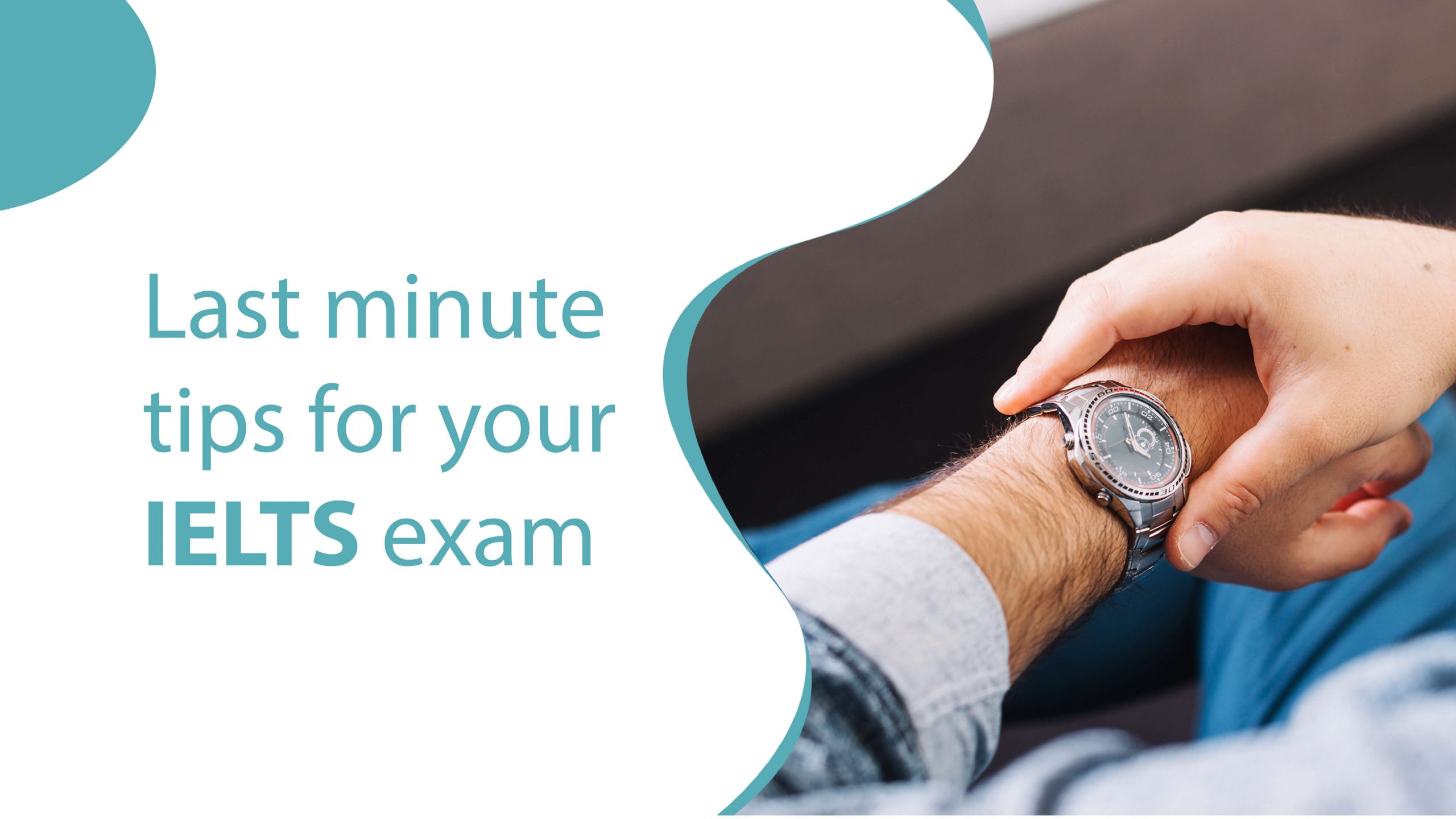Last Minute Tips for Your IELTS Exam
If your IELTS exam is around the corner, and you are worried about your performance in a real exam, we have some last-minute tips for you to help you score better.
First and foremost, you must be aware of the pattern of your IELTS test before you sit for the exam.
Let’s get started with our tips.
1. LISTENING
- Remember, in IELTS listening module recording will be played only once.
- You are given time to read the questions before the recording starts, use this time effectively and try to look for answers to those particular questions in the recording.
- At the end of each section, 30 seconds are given to you to check the answers, once checked, quickly move to read the next questions.
- If you are asked to write about a map, diagram or a flowchart, follow the audio in its respective order.
- Write answers in blanks following correct grammatical rules and spelling.
- Read the instructions carefully, if you are asked to write A, B, C in blanks, do not write complete words.
- If it says to write True or False, do not write Yes or No.
- At the end of listening module you are given 10 minutes to transfer the answers to answer sheet in paper based exam and no such time is given in computer based exam.
- In paper based exam, prefer using a pencil to write your answers in answer sheet.
2. READING
- Read the instructions carefully.
- Have a look at how many words you are supposed to write in your answer.
- Make sure to write correct spellings else you will not get any point for your answer.
- The test shall start getting difficult with every next section.
- Try not to spend more than 20 minutes on 1 section so that you are able to complete the entire test in 1 hour.
- Your aim should not be to understand each word of the paragraphs given, rather try finding the answers to the questions.
- There are several questions whose answers are in sequence while others are scattered.
- Read carefully so you don’t have to read the content again and again.
- First try reading the questions and then find the answers in passages.
- Underline the keywords as you move through your IELTS reading paper.
3. WRITNG
- In IELTS Writing, there are two tasks and Task 2 is worth double the score than Task 1.
- Therefore, you should spend more time on Task 2. Ideally, 20 minutes on Task 1 and 40 minutes on Task 2.
- Avoid informal words, phrases and slangs in your IELTS writing.
- Your writing must be clear and precise. Do not drag your answers but write to the point.
- Do not repeat your arguments in your essay.
- Follow the prompts given in IELTS letter.
- Make sure you write correct grammar and spelling.
- Add complex and compound sentences in your answers to deliver your thoughts.
- Follow the word count limit.
- IELTS writing requires a wide academic vocabulary.
- Do not forget to add an example in your IELTS essay.
- Follow the pattern, suggested by examiners.
4. SPEAKING
- IELTS speaking module is just like an interview and lasts for 11 to 14 minutes.
- The examiner who asks the question doesn’t mark your score, rather your answers are being recorded. Therefore, do not panic if the examiner seems serious.
- Take deep breaths before entering the room.
- If you don’t get the question clearly, feel free to ask the examiner to repeat or elaborate.
- Try to be fluent, take strategic pauses.
- Take first few seconds to think and draft your answer, then start speaking.
- Make sure you answer what is being asked and don’t beat around the bush.
- While you speak, your grammar and sentence structure ought to be correct.
- You can make bullet points in IELTS speaking part 2.
- Do not worry about accent, but make sure your pronunciation is right.
Stay Calm, Confident and Focused.

